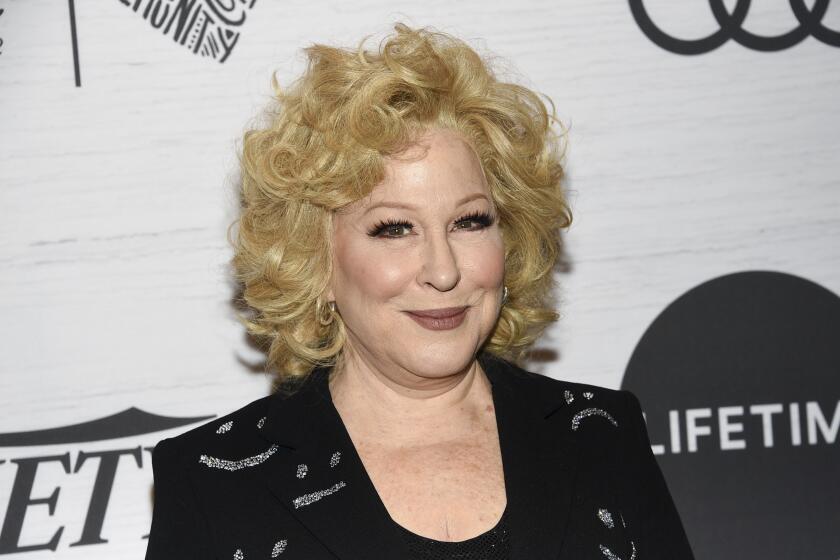Pamela Paul criticized for anti-trans opinion about the word ‘woman’

The online literary community is slamming Pamela Paul, publishing kingmaker turned opinion columnist, after she wrote a piece in the New York Times criticizing language that is inclusive of transgender and nonbinary communities. And at least one critic is alleging that she used her longtime perch as the head of the paper’s books section to tone down transgender advocacy.
In an article published Sunday, headlined “The Far Right and Far Left Agree on One Thing: Women Don’t Count,” Paul, who stepped down as books editor in March, posits that women in America are being stripped of their human rights not only by Republicans outlawing abortion but also by academics, progressives and transgender activists who reduce women to “a mix of body parts and gender stereotypes.”
Earlier this week, author and journalist Patrick Ness called the article “a nasty bit of business” for “equating anti-abortion activists with trans rights believers” on his Instagram. He also alleged that Paul had asked him to change the opening in his review last year of Kyle Lukoff’s “Too Bright to See,” a story about a transgender boy.
“Ms Paul asked me to change my original opening — stating how transgender children are under attack — into something less political and ‘more focused on the book,’” he claimed before posting his original first paragraph, which began: “The culture wars have come for your transgender children.”
Want your child to love reading? Two New York Times children’s book editors give tips on making reading a pleasurable experience
The opening sentence in the published review read: “Now here is a beautiful little book that carries a great, great weight on its shoulders.”
In an email statement to the Times, a spokesperson for the New York Times said Thursday that “Pamela Paul was not the assigned editor for the review you’re referencing, nor did she have contact with Mr. Ness during his writing of the piece.”
Paul, whose former position made her arguably the most influential person in print media books coverage, writes that the word “woman” once “had a specific meaning tied to genetics, biology, history, politics and culture. No longer. In its place are unwieldy terms like ‘pregnant people,’ ‘menstruators’ and bodies with vaginas.’”
While she recognizes “the noble intent” of omitting the word “woman” when talking about reproductive health, Paul argues that “despite the spirit of inclusion, the result has been to shove women to the side.”
Others writers, critics and books journalists, who had generally been circumspect about Paul during her books tenure, now decried Paul for what they considered to be her anti-trans and trans-exclusionary views.
Maris Kreizman, host of LitHub’s literary podcast “The Maris Review,” wrote on Twitter Sunday: “Looking at the Opinion section and once again marveling over the fact that this terrible, hackneyed, boring writer was once the most important person in all of book publishing.”
‘There was no intention of anything exclusionary or transphobic in what I said,’ Bette Midler tweeted after getting heat for her remarks about women.
And on Wednesday, after tweeting a New York Times article about librarians coming under attack over book bans, Kleizman wrote: “Occurs to me that people who want to ban certain children’s books will be quoting Pamela Paul’s op-ed in their arguments.”
An author of eight books, including “100 Things We’ve Lost to the Internet” and “Pornified,” Paul joined the Times in 2011 as the children’s books editor. She went on to become editor of the New York Times Book Review. In 2016 her role was expanded to overseeing all books coverage at the paper, including daily reviews and industry stories. She also hosted the Book Review podcast. Her position remains vacant since her March departure.
After Paul’s opinion piece was published, Erik Hane, editor and founder and agent at Headwater Literary Management, tweeted: “As Pamela Paul starts churning out low-effort reactionary garbage piece and after piece in her new job in the op-ed section, spare a thought for how this person may have affected the NYT Books section she ran for many years.”
Bette Midler also became the center of a heated debate this week after tweeting anti-trans concerns about the word “women.” She took to Twitter on Tuesday to defend herself, insisting that “there was no intention of anything exclusionary or transphobic in what I said; it wasn’t about that.” She cited Paul’s opinion piece to support her claim.
More to Read
Sign up for our Book Club newsletter
Get the latest news, events and more from the Los Angeles Times Book Club, and help us get L.A. reading and talking.
You may occasionally receive promotional content from the Los Angeles Times.










